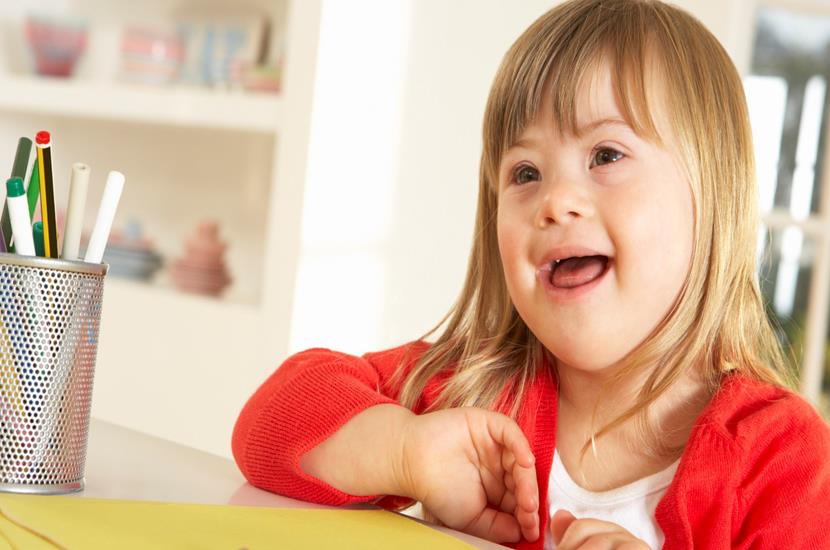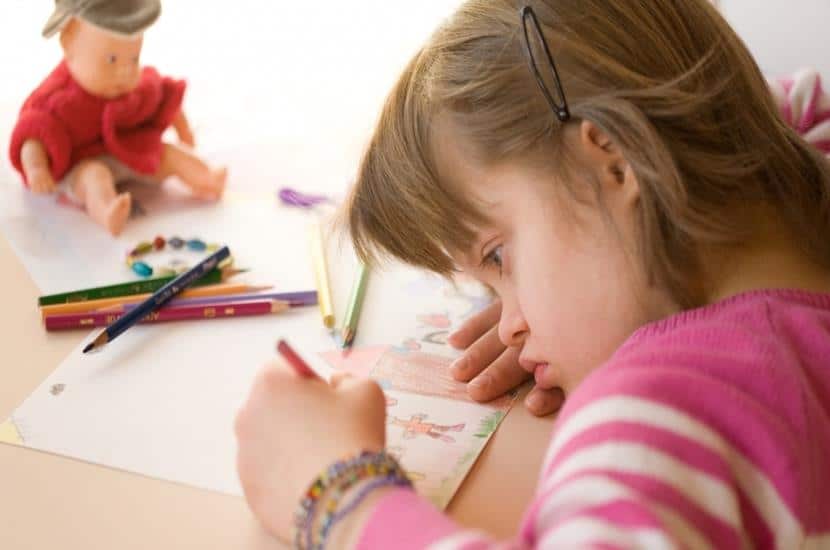
When it comes to talking about the integration of children with Síndrome de Down In the educational system, all social and educational organizations agree to carry it out. Today, both Spanish and European schools develop their own programs to attend to the particularities of all these children with special educational needs. However, from national institutions in support of students with Down Syndrome, it is specified that in reality, integration alone is not enough.
What we must aspire to achieve is a total INCLUSION where we do not limit ourselves to having "the child present", but to favor their total interaction in the classroom and in their community. It would be about going one step beyond the domain of curricular knowledge, we seek above all to educate for life. It is therefore necessary that students with Down Syndrome develop their affectivity, control of their emotions, their social skills and that they form part of the group as one more. It is clear that we still have a lot to achieve, and therefore, in «Madres Hoy» we invite you to reflect on it.
Integration of the child with Down syndrome
We all know that Down Syndrome is one of the most common intellectual disabilities in the population. According to incidence data it is estimated to affect 1 in 1.000 children. One of the main needs of any social institution is to promote the correct integration of these groups in our societies:
- Develop an educational system where every child, whatever their need, particularity and origin, receives the same learning opportunities.
- Offer the same job opportunities.
- Offer institutional support for tomorrow when this group reaches old age can be properly cared for.

Today in Spain the educational system legally includes the obligation to develop adequate programs for integrate children into the classroom. Hence, each school, depending on its personal resources, usually combines the ordinary classroom with the special classroom.
- The student with Down syndrome works an adapted curriculum in the special classroom to achieve the necessary objectives of each stage. Individual adaptations are made that work together with the PT (pedagogue therapist) or with the speech therapist.
- In addition, the student with Down syndrome is also integrated into the ordinary classroom with students, generally of the same age. With the material adapted according to their particular needs and with the support of the teaching staff, they achieve remarkable results.
One step further: the inclusive school
Sometimes, many of us think that everything ends with integrating the child with educational needs in a classroom, where we know that adequate attention is going to be offered to him so that he masters the instrumental subjects, and so that he receives those approved that will allow him to go passing the courses.
This is not enough. Education goes beyond mastering the multiplication table. Our obligation is to educate for life, happiness and personal autonomy, therefore, we must go a step further and favor the INCLUSIVE SCHOOL.

Backbones of the inclusive school
Today, when it comes to articulating, promoting and regulating the inclusive school, we have the legal support of the Convention on the Rights of Persons with Disabilities; The Organic Law 2/2006, of May 3, Education (LOE), the Universal Declaration of Human Rights (1948. art.26), and the UNESCO Report on Education for the XNUMXst Century.
- Inclusive education does not seek, but rather GUARANTEES that all students have access to a common culture that provides basic training and education for life.
- It aims for all students to have the same opportunities in all areas of their SOCIAL INTERACTION, from their moments of leisure, work, etc ...
- CONTINUOUS COLLABORATION between school institutions, the family and the community itself. When it comes to talking about inclusion, it is useless if we do not extend its use beyond the classroom. For this reason, it is vital that families have all the information about how their children grow and what personal and social demands they require in order to feel fully integrated. (Not to protect them we are going to raise happier children).
- In turn, the community, the town, the city and even the neighborhood itself, must be able to promote that integration where the child feels valid at all times, where you feel like one more when it comes to moving around, accessing information, enjoying your leisure moments and even contributing your help and initiatives for the good of society itself.

Educating is everyone's responsibility, we are an extensive network that cannot remain isolated on our "own islands" without understanding that sometimes small initiatives create great support for children with Down Syndrome from which we can all benefit. It is worth raising awareness of it.